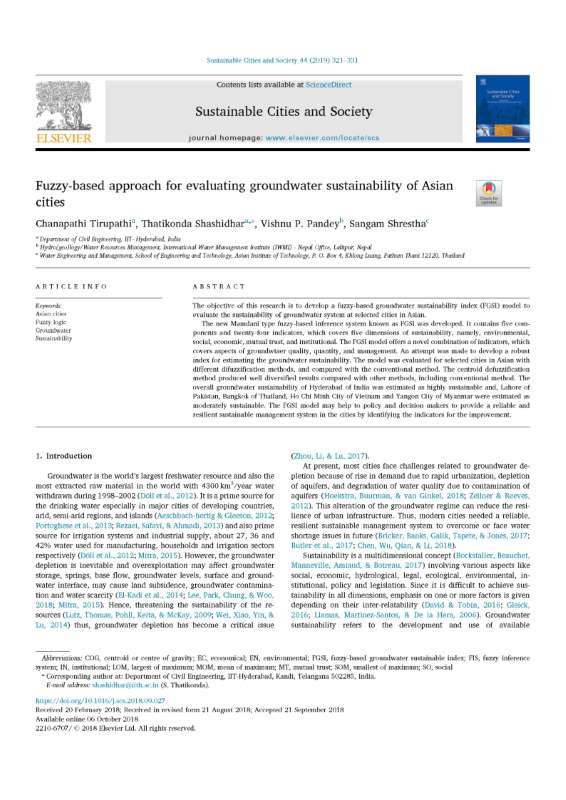The objective of this research is to develop a fuzzy-based groundwater sustainability index (FGSI) model to evaluate the sustainability of groundwater system at selected cities in Asian.
The new Mamdani type fuzzy-based inference system known as FGSI was developed. It contains five components and twenty-four indicators, which covers five dimensions of sustainability, namely, environmental, social, economic, mutual trust, and institutional. The FGSI model offers a novel combination of indicators, which covers aspects of groundwater quality, quantity, and management. An attempt was made to develop a robust index for estimating the groundwater sustainability. The model was evaluated for selected cities in Asian with different defuzzification methods and compared with the conventional method. The centroid defuzzification method produced well diversified results compared with other methods, including conventional method. The overall groundwater sustainability of Hyderabad of India was estimated as highly sustainable and, Lahore of Pakistan, Bangkok of Thailand, Ho Chi Minh City of Vietnam, and Yangon City of Myanmar were estimated as moderately sustainable. The FGSI model may help to policy and decision makers to provide a reliable and resilient sustainable management system in the cities by identifying the indicators for the improvement.

